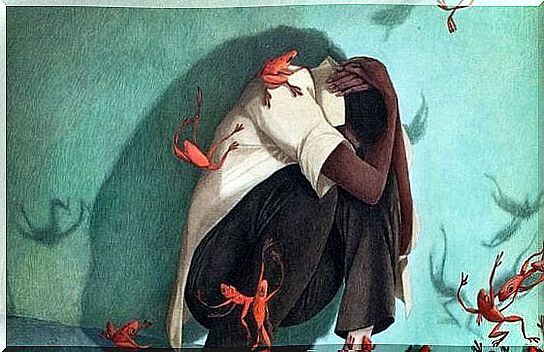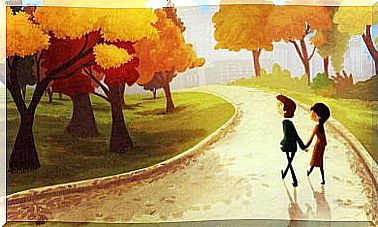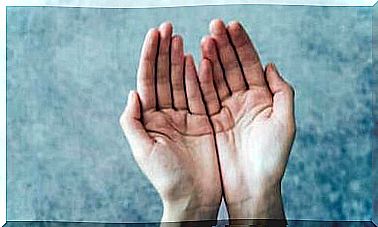5 Expressions Best Not To Use

There are expressions that are better not to use, as they were created out of hate. These are words or phrases used almost always in moments of anger and whose objective is to destroy. The problem is often that they fulfill their role: they hurt, scar and even devastate a person. They are almost always uttered by someone with false authority.
As much as we have disagreements with others, there are expressions we should never allow ourselves to use. And we shouldn’t do that because they are violent messages. Here we are not talking about aggressiveness born of contradictions or differences, but of violent acts that only generate more violence and destruction.
It is advisable for people who use these types of expressions to reflect on what motivates them to use them. There is more to these words than anger. The truth is, we win when these words are eradicated from our lives because even offenses have a reasonable limit. Next, we’ll show you five of these expressions that it’s best not to use and keep in the drawer of oblivion.
Expressions that are best never used
Foolish, silly, idiot… and synonyms
We would do well not to call anyone “silly”, “silly”, “slow” or one of the ten thousand synonyms these words have. They are offensive words when we say them outside of a relaxed context, especially when we say them angrily and in a derogatory tone.

It is an offense that addresses the person’s essence. It classifies, or better, disqualifies the mental capacity of that person. In this sense, these labels go far beyond the limits of criticism. It is an act of psychological violence that destroys. We should never use these expressions with anyone, as no one is worthy of them.
Failed
It is one of the most used expressions, especially after most commercial movies started using the term “loser” or “loser” as a favorite offense. In highly competitive societies, and above all consumer ones, success has very important limits and takes on an absolute connotation.
A less obtuse perspective leads us to see that rarely, if not never, this label makes any sense. Conquest times alternate with loss times. We all evolve and also fall a few times. Nobody is categorically a failure, just as nobody is absolutely successful. However, designating people with this type of label means an attempt to brand them with a designation that omits their value to themselves and to society.
you are useless
This type of expression becomes truly violent when it is expressed by someone who has power, whoever it is: a parent, a teacher, a leader, etc. It is in these conditions that they reveal their greatest destructive power. In any case, regardless of the circumstances, it is unfortunate that one human being refers to another in these terms.

To classify someone as “useless” means to call into question all their actions. It is an absolutist classification: it refers to the whole person. And it aims to nullify the other, try to make the other disappear within a category of human values. There is no constructive way to use this word with another person.
you can’t and you won’t
This is another categorical expression that, in addition to being extremely offensive, is also very false. Who has a “crystal ball” to determine that someone can’t or won’t be able to do something? History is replete with examples of people who said “you can’t do it” and then had to recant.
What we don’t know is how many attempts failed because of this lack of trust induced by others. The human being is changeable and life is dynamic. What you couldn’t do today may be easier to do tomorrow. At the same time, no one has the right to tell the other that he won’t make it, so this is one of the main expressions that it is better not to use.
weird or weird
This is one of the meanest expressions because it’s not even a direct insult. Is someone “weird” or “weird” about whom? What is the basis for defining someone as an outsider? And finally, what’s wrong with being “weird”? Where’s the problem with being weird?

This type of expression seeks to achieve the dignity of the other. Strangeness is, in principle, a virtue. Doesn’t the scarce have much more value than the common? So, the problem is not in this particularity. These words are used for tagging and deleting. To make the other feel “outside” the rule or acceptable.
If you’re one of those people who have uncontrollable tantrums, it’s important to review what’s going on. Don’t forget that words, once spoken, don’t go back, and repairing the damage done can be almost mission impossible. Thus, destructive expressions can give rise to more serious conflicts, for which the solution is complicated.
For this reason, stay away from these expressions that are best not to use to lighten not only the lives of others, but also your own.









